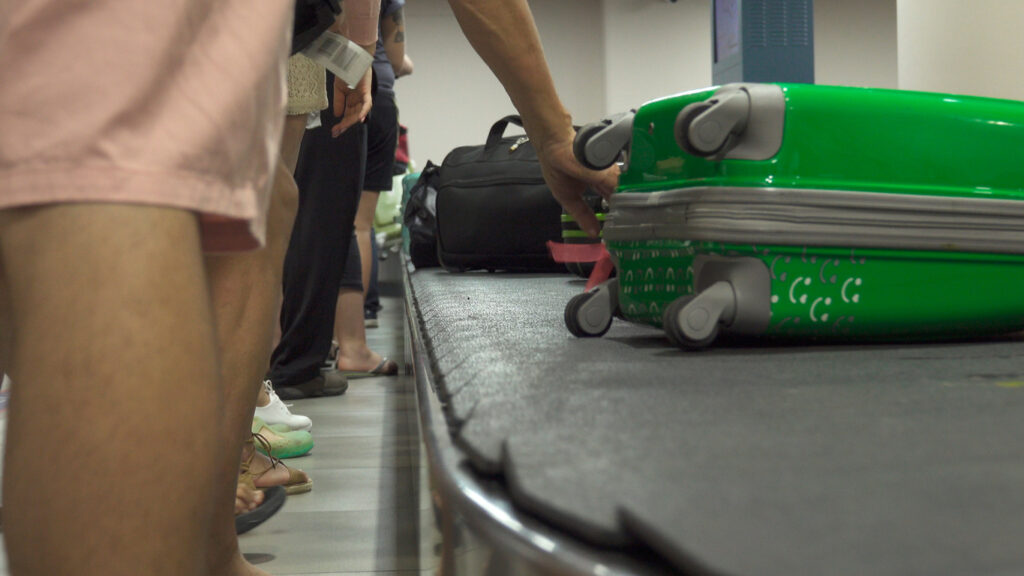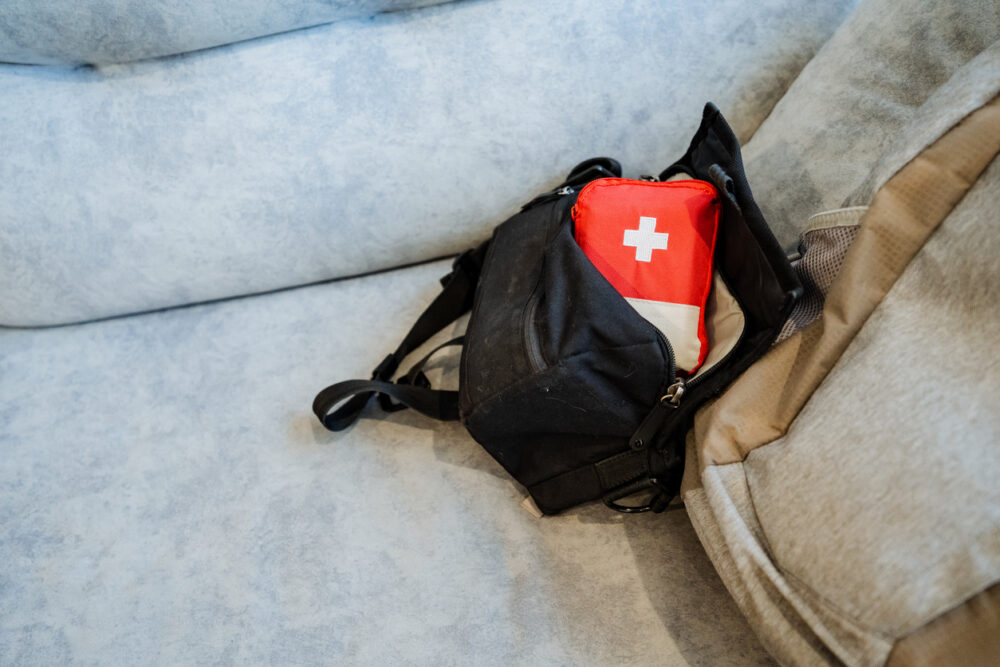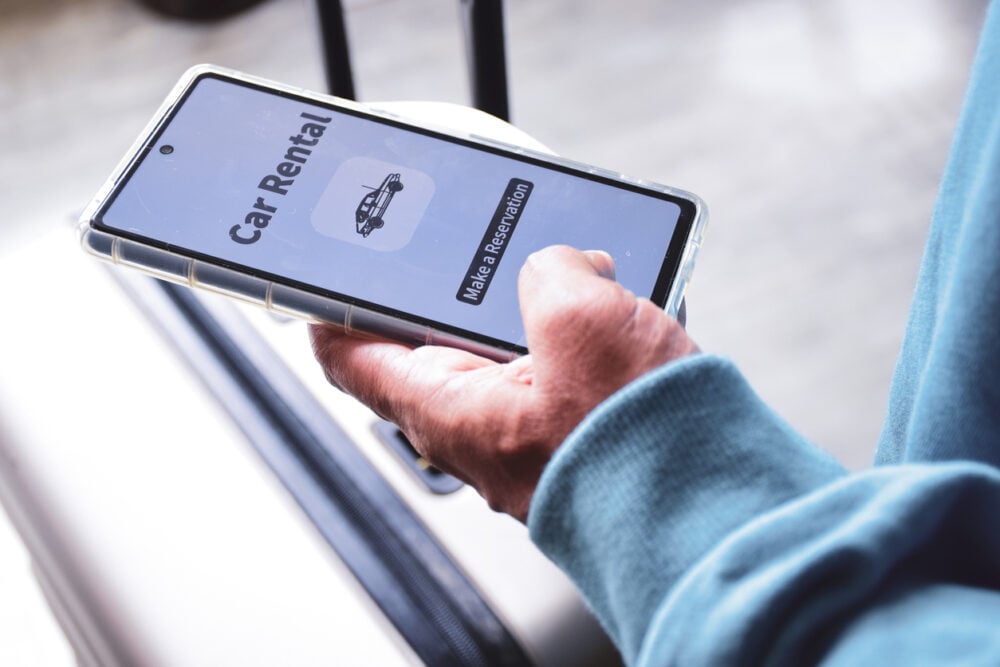Even seasoned travelers fall victim to these disasters, but knowing this could save your trip.

A dream vacation can turn into a nightmare in an instant. One small mistake, one unexpected twist, and suddenly, your perfect trip is anything but relaxing. It happens more often than you think, and the worst part? Most travelers never see it coming. The excitement of exploring a new place can make it easy to overlook small details—until those details turn into major problems. But a little preparation goes a long way.
Knowing what to expect and how to handle surprises can mean the difference between a smooth journey and a stressful disaster. Travel should be about adventure, not frustration. Whether you’re heading somewhere new or revisiting a favorite destination, staying ahead of common pitfalls can keep your trip on track. A little planning now can save you from a world of regret later.
1. That dream trip gets canceled, and you’re left scrambling.

Months of planning, endless excitement, and then—boom—everything falls apart. A flight gets canceled, a hotel shuts down, or an unexpected emergency forces you to stay home. When disaster strikes, the key is having backup plans in place. Flexible bookings, travel insurance, and a solid cancellation policy can save you from losing thousands, says Zoey Perregrine writing for WowFare. If airlines leave you stranded, knowing your rights can help you get rebooked fast. When booking hotels, check refund policies carefully—non-refundable deals are tempting but risky.
And if a last-minute cancellation happens on your end, reaching out directly to airlines and hotels instead of relying on automated systems can sometimes work in your favor. No one wants to think about a trip falling apart, but a little preparation can keep the disappointment from turning into a financial nightmare.
2. The place you booked looks nothing like the photos.

That charming Airbnb or five-star resort seemed perfect online, but in reality, it’s a run-down disaster. Peeling paint, broken plumbing, or worse—an outright scam. Fake listings and misleading photos catch travelers off guard all the time, writes Cristina Povov for Bitdefender.com. Always read recent reviews, not just the glowing ones at the top. Reverse image searches can help you spot stolen photos, and confirming your reservation directly with the hotel ensures it actually exists.
Booking with reputable platforms that offer guarantees can protect you if things go south. Upon arrival, take photos of any major issues right away—having proof makes it easier to get refunds or compensation. If your accommodations are a disaster, knowing nearby alternatives ahead of time can turn a ruined stay into just a minor hiccup.
3. A simple flight delay spirals into a full-blown travel nightmare.

It starts with a minor delay. Then another. Before you know it, you’re missing connections, stuck overnight, or trapped in an airport with no idea when you’ll actually leave. Flight disruptions are more common than ever, and travelers who aren’t prepared often end up spending hundreds on last-minute hotels or alternative flights. Setting up real-time flight alerts and tracking weather patterns can give you a head start on finding solutions.
If delays start stacking up, immediately check for other flight options—sometimes, airlines won’t offer rebooking unless you ask. Travel insurance that covers delays can help recover unexpected costs, and lounge access (even for a day) can turn an airport nightmare into a much more comfortable experience, according to experts at SquareMouth. When travel chaos strikes, knowing how to pivot quickly makes all the difference.
4. Lost luggage turns the start of your trip into a disaster.

You arrive at your destination, but your bags? Nowhere to be found. Airlines lose millions of bags every year, and if it happens to you, it can mean starting your vacation with no clothes, no essentials, and a lot of stress. The best defense? Always pack a carry-on with at least a day’s worth of essentials, including meds, chargers, and a change of clothes, remind Macy Meyer and David Watsky in an article on CNET. AirTags or smart trackers in your luggage can help you locate missing bags faster than the airline.
Filing a lost baggage claim right away and knowing what compensation airlines owe you can also speed up the process. If you have to shop for emergency replacements, keep all receipts—many airlines will reimburse reasonable expenses. While lost luggage is frustrating, being prepared ensures it won’t ruin your entire trip.
5. A language barrier turns a simple issue into a stressful ordeal.

Getting lost, ordering the wrong meal, or struggling with directions is all part of the travel experience. But when you can’t communicate in an emergency, it stops being fun. Not every country has widespread English speakers, and assuming you’ll “figure it out” isn’t always a great plan. Downloading a reliable translation app, learning basic phrases, and carrying a hotel business card in the local language can be lifesavers.
If you need help, approaching younger locals often works best—they’re more likely to know some English. In critical situations, handing your phone to someone and letting them type a response in their language can clear up confusion fast. Language gaps don’t have to derail your trip, but a little preparation can keep miscommunication from turning into a full-blown crisis.
6. A medical emergency leaves you panicked and unprepared.

A minor slip, a bad case of food poisoning, or an unexpected allergic reaction can quickly turn into a nightmare if you’re not prepared. Medical care varies wildly by country, and not every destination has an English-speaking doctor around the corner. Travel insurance that includes medical coverage is a must—without it, even a simple ER visit can cost thousands. Knowing the location of the nearest hospital or urgent care center before you need it can save valuable time.
Packing a small first-aid kit with meds for pain, stomach issues, and allergies can prevent a bad situation from getting worse. If you take prescription medications, carrying extra in their original containers (along with a copy of your prescription) ensures you’re covered if you run out or lose them.
7. Scammers target you the moment you step off the plane.

Tourist scams happen everywhere, from taxi overcharges to fake “helpful” locals leading you into a trap. Falling for one can cost you money—or worse, put you in danger. Researching common scams in your destination before you arrive helps you spot red flags. Avoiding unofficial taxis, keeping valuables secure, and being wary of overly friendly strangers offering help can keep you out of trouble.
If someone insists there’s a problem with your hotel or credit card, verify with the company directly. Staying alert without being overly paranoid is key—most scams work because travelers aren’t paying attention. The best advice? If something feels off, trust your gut and walk away.
8. An overbooked hotel leaves you without a place to stay.

After a long journey, the last thing you want is to hear, “Sorry, we’re full.” Overbooking happens more often than hotels admit, especially during peak seasons. Arriving early in the day increases your chances of securing a room before things fill up. If you book through a third-party site, calling the hotel directly to confirm your reservation a few days before check-in can prevent last-minute surprises.
If a hotel bumps you, they’re usually required to find alternative accommodations—politely but firmly insisting on a comparable room at another property can work in your favor. Keeping a list of backup hotels nearby ensures you’re not scrambling at the last minute. The key is staying calm, knowing your options, and refusing to accept the first lousy alternative they throw at you.
9. A simple mistake with local laws lands you in serious trouble.

Not all rules are obvious, and breaking them—even accidentally—can have serious consequences. Some countries have strict dress codes, banned medications, or zero tolerance for things that might seem harmless back home. Before you travel, checking local laws can prevent an innocent mistake from turning into a legal nightmare. Even chewing gum is illegal in some places!
Respecting local customs isn’t just polite—it keeps you out of trouble. If you do run into issues, knowing how to contact your embassy can be a lifesaver. Legal problems abroad are no joke, and assuming “I’m a tourist” will get you off the hook is a dangerous mindset.
10. A simple currency mix-up costs you way more than you expected.

Nothing feels worse than realizing you just overpaid by a ridiculous amount—especially when you could have avoided it. Foreign currencies can be tricky, and not every country uses easy conversion rates. Some travelers unknowingly hand over way too much cash, while others fall victim to shady ATM fees or currency exchange scams. Before you go, familiarize yourself with the exchange rate and use a reliable currency converter app.
Avoid airport exchange counters—they often have the worst rates. Instead, use ATMs connected to major banks and decline the “dynamic currency conversion” option, which typically charges more. If you’re using cash, count your change carefully—some vendors bank on tourists not noticing shorted bills. A little awareness goes a long way in making sure you’re spending wisely, not getting ripped off.
11. A rental car disaster leaves you stuck in the middle of nowhere.

Road trips can be an amazing way to explore a new destination—until your rental car experience turns into a logistical nightmare. Hidden fees, confusing insurance policies, and unexpected breakdowns can make what should be a smooth ride feel like a massive headache. Before signing anything, inspect the car carefully and take photos of any scratches or dents to avoid being blamed for pre-existing damage.
Double-check fuel policies—some rental companies charge outrageous fees if you return the car without a full tank. If you’re driving in another country, research local road rules and whether you need an International Driving Permit. And don’t assume your phone’s GPS will work everywhere—downloading offline maps ahead of time can prevent the horror of getting lost in the middle of nowhere with no signal.
12. A wrong turn takes you somewhere you absolutely shouldn’t be.

Exploring new places is part of the adventure, but one wrong turn can put you in a dangerous situation fast. Some neighborhoods are best avoided, especially at night, and wandering into the wrong area unprepared can make you an easy target. Before setting out, research which parts of a city are safe for tourists and which areas to avoid.
Stick to well-lit, busy streets, and if you’re walking, act like you know where you’re going—even if you don’t. If you get lost, stepping into a café or hotel to check your map is safer than standing on the street looking confused. Trust your instincts—if something feels off, turn around. Adventure is great, but staying safe should always come first.
13. A missing passport turns your trip into an international nightmare.

Few things are more panic-inducing than reaching for your passport and realizing it’s gone. Whether it’s lost, stolen, or accidentally left in a hotel safe, being stranded in another country without it is a stressful experience. The best way to prevent this? Make digital and physical copies of your passport before your trip and store them separately from the original.
Some travelers swear by carrying a decoy wallet with a small amount of cash to throw off potential thieves. If your passport does disappear, head to the nearest U.S. embassy or consulate as soon as possible. Having backup identification, passport photos, and proof of travel plans will speed up the replacement process. Losing a passport is frustrating, but with the right preparation, it doesn’t have to ruin your entire trip.
